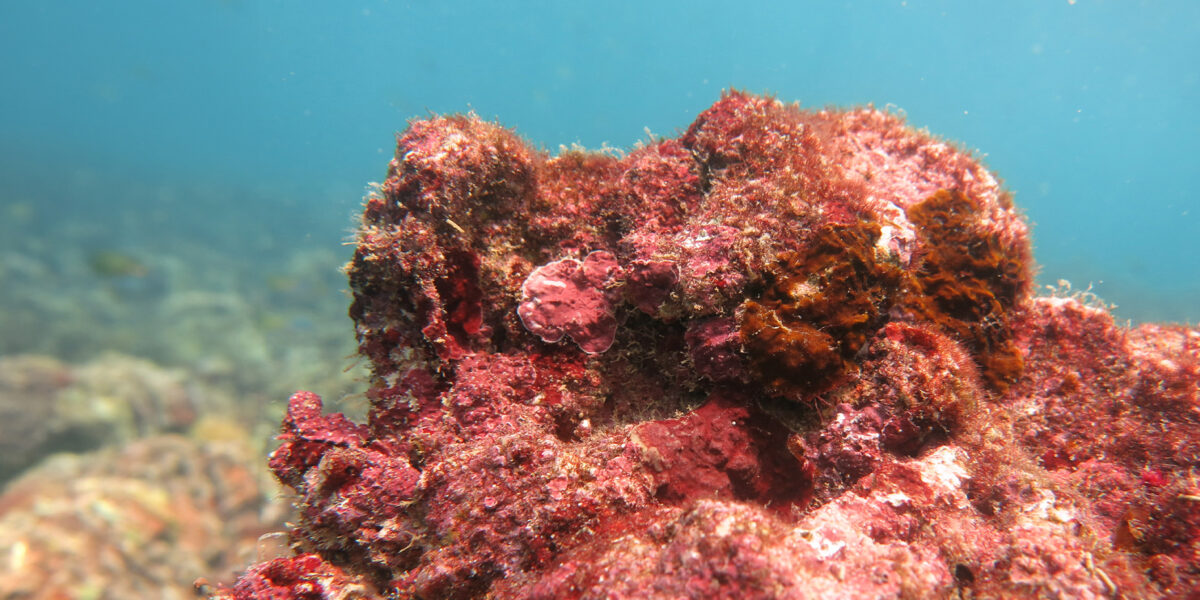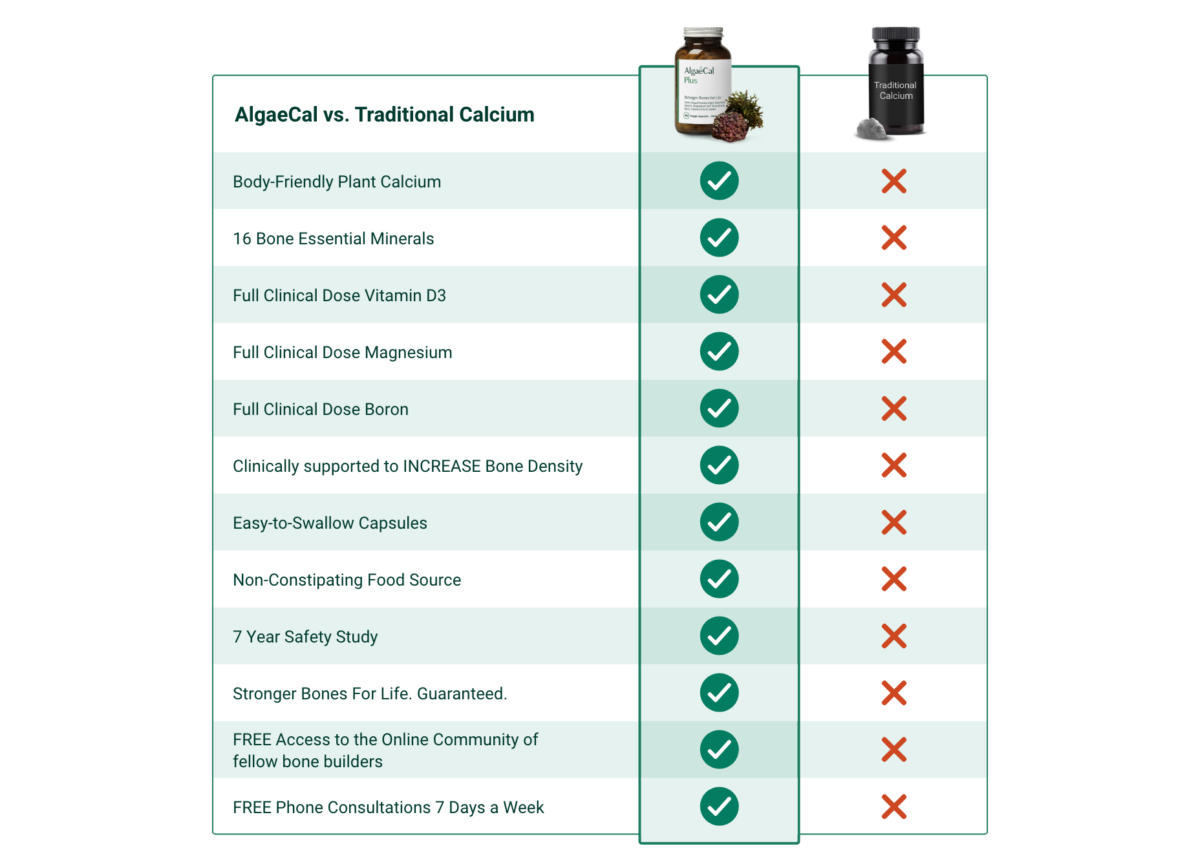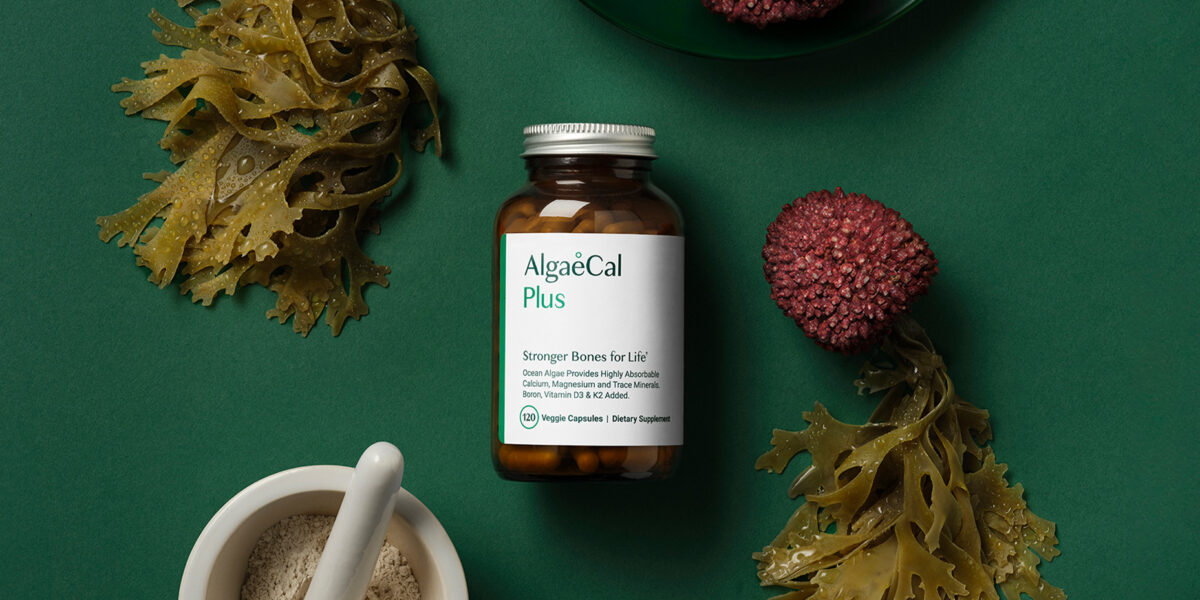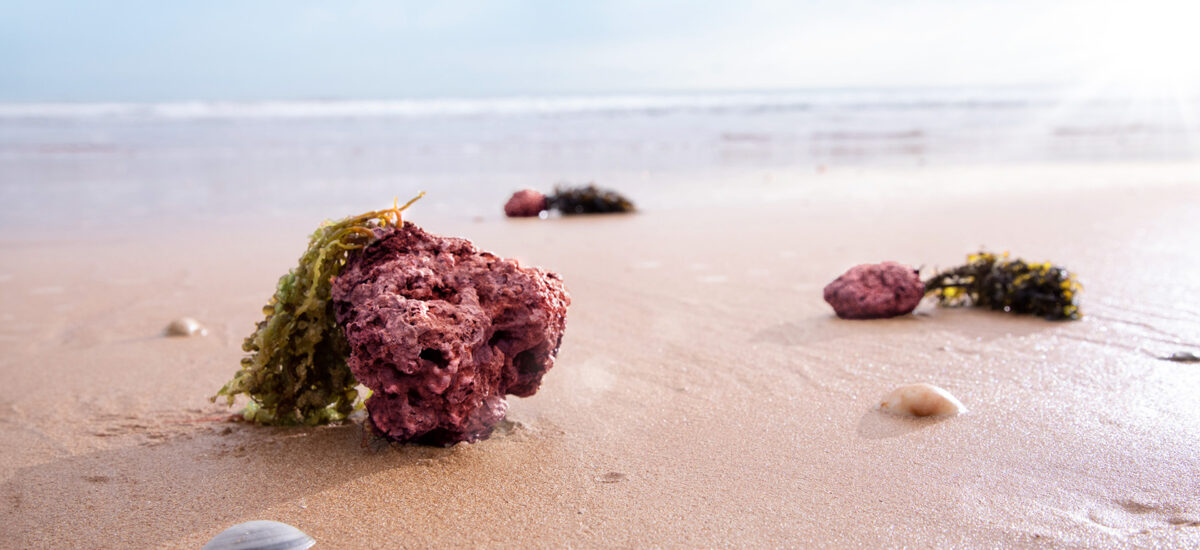Increase Bone Density Without Harsh ‘Treatments.’
Are you looking to improve your bone density? There’s an intriguing solution from the natural world: an algae with proven clinical benefits for bone health. In clinical studies, people with low bone density experienced a notable increase in their bone density after incorporating this algae into their diet for just six months.
But this isn’t a modern invention. The algae we’re talking about has ancient roots. In fact, it predates the dinosaurs! And it’s been prized for its medicinal properties for thousands of years. And today, modern science backs up what our ancestors knew: these ancient algae possess the perfect nutritional composition to strengthen our bones. [1]
Red Algae
Scientists have identified over 6,000 different species of red algae. These species range from minuscule phytoplankton to expansive seaweeds. [2].
Some varieties, like the Coralline algae, have evolved to incorporate calcium carbonate into their cell walls. This adaptation not only reinforces the algae but also acts as a deterrent to potential predators. This feature of red algae plays a pivotal role in marine ecology, particularly in the formation and sustenance of coral reefs. By depositing calcium carbonate, these algae contribute to the structural integrity of reefs, underpinning entire marine habitats.
And what gives red algae their characteristic red color? It turns out it’s due to phycobiliproteins, a type of fluorescent protein. [3]

Red Algae Health Benefits
This type of algae is not only visually striking due to phycobiliproteins but is also packed with other vital phytonutrients like lutein, zeaxanthin, and chlorophyll. These compounds are celebrated for their powerful antioxidant and anti-inflammatory properties, as confirmed by numerous scientific studies. [4][5][6][7].
Red algae have also been studied for their external use as a photoprotective agent, protecting skin cells against sun damage and aging [8][9].
Most impressive, however, is red algae’s impact on bone mineral density.
As mentioned, certain types of red algae deposit calcium in their cell walls and are responsible for building the strong and sturdy structure of coral reefs by depositing their calcium along the reefs.
Well, research shows that just like the coral reefs, red algae can improve the deposition of calcium (and other minerals) into our bones. When taken as a dietary supplement, red algae has been shown to reduce bone loss and enhance bone mineral density (BMD) in one of the groups most vulnerable to bone loss– women over the age of 40 [10].
Red Algae for Bone Health
All types of algae have their own health benefits, but red algae, especially a kind known as Algas calcareous, is exceptional for bone health. This particular type of red algae is rich in calcium and other minerals, making it stand out among other forms of red algae in supporting strong bones.
Algas calcareous (Mesophyllum superpositum), or simply AlgaeCal, is a type of red algae well-known for its ability to help increase bone mineral density.
How does AlgaeCal Increase Bone Density?
Two reasons:
First, its mineral content mimics that of human bones. That’s right, AlgaeCal naturally contains all 13 minerals that your bones require for optimal health.
Second, this plant-based calcium is more easily absorbed by the body compared to other types of calcium. This is because the algae pre-digest the minerals, making them more readily available for your body to absorb. In contrast, calcium derived from rocks doesn’t have this pre-digestive advantage – after all, they are just rocks and not as easy for the body to use.
This algae is scientifically proven to increase bone mineral density [10].

AlgaeCal Plus is formulated from this algae with added Vitamin D3, Vitamin K2, and Vitamin C – for optimal bone support. It’s the only supplement in the world that’s clinically supported to increase bone density.
So if you want stronger bones, AlgaeCal isn’t an option. It’s the only option.

Takeaway
AlgaeCal Plus is the only supplement clinically supported to increase bone density.
For more information, news, and research about aging gracefully, sign up for the AlgaeCal Newsletter.





Catherine A. Greene
June 22, 2024 , 12:44 pmHello,
I recently had a Dexascan, and it showed I have Osteopeina. I’m interested in your product AlgaeCal, and I read somewhere on your site that AlgaCal would reimburse if the Osteopenia doesn’t reverse. Is that correct? Do I send you my Dexascan before I begin on AlgaeCal. Please send me information regarding this.
Best, Catherine Greene